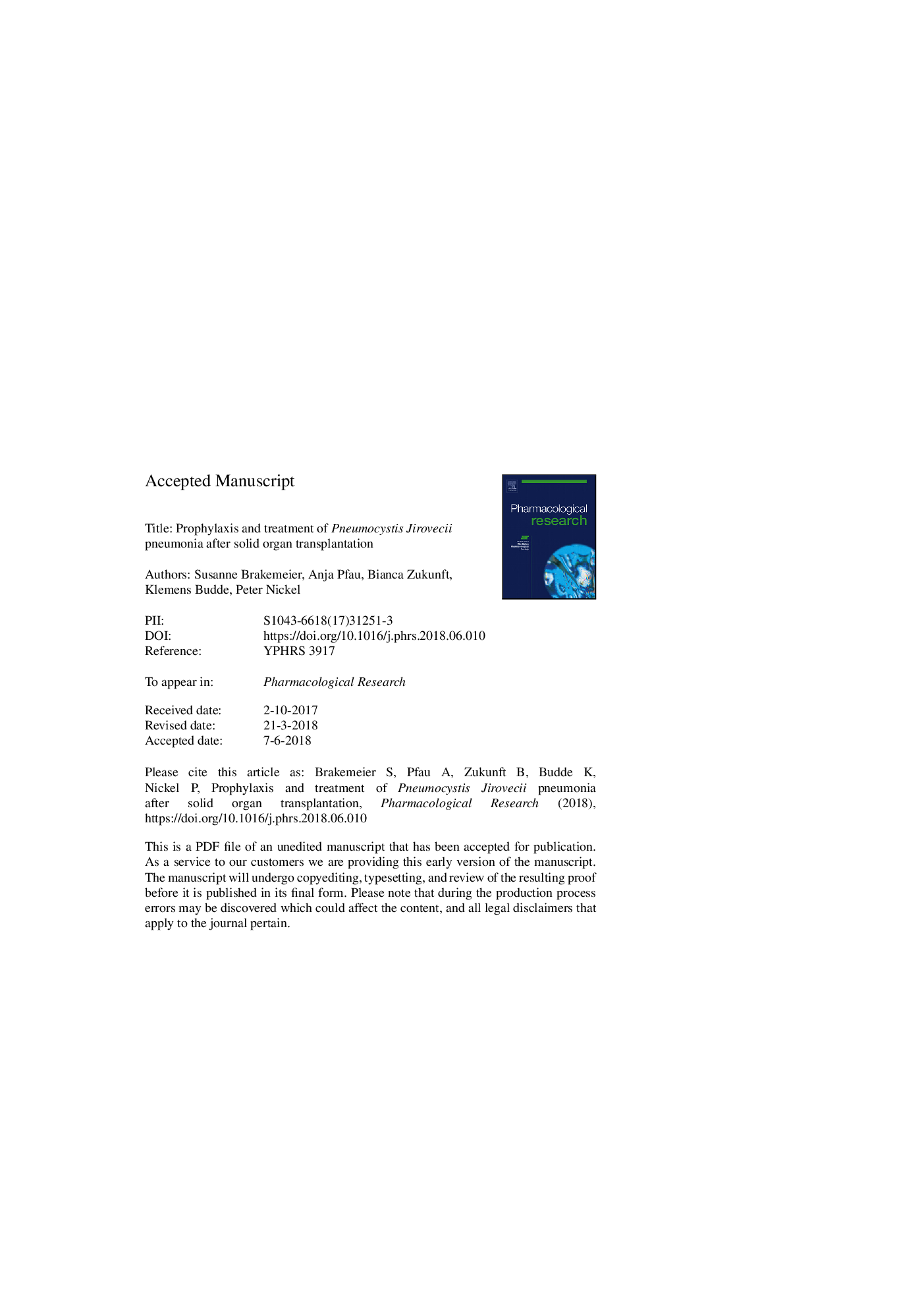| Article ID | Journal | Published Year | Pages | File Type |
|---|---|---|---|---|
| 8536235 | Pharmacological Research | 2018 | 22 Pages |
Abstract
Pneumocystis jirovecii pneumonia (PJP) is an opportunistic infection diagnosed in immunocompromized patients. After solid organ transplantation, early infection has decreased as a result of effective prophylaxis, but late infections and even outbreaks caused by interpatient transmission of pneumocystis by air are present in the SOT community. Different risk factors for PJP have been described and several indications for PJP prophylaxis have to be considered by clinicians in patients even years after transplantation. Diagnosis of PJP is confirmed by microscopy and immunofluorescence staining of bronchial fluid but PCR as well as serum Ã-D-Glucan analysis have become increasingly valuable diagnostic tools. Treatment of choice is Trimethoprim/sulfamethoxazole and early treatment improves prognosis. However, mortality of PJP in solid organ transplant patients is still high and many aspects including the optimal management of immunosuppression during PJP treatment require further investigations.
Related Topics
Health Sciences
Pharmacology, Toxicology and Pharmaceutical Science
Pharmacology
Authors
Susanne Brakemeier, Anja Pfau, Bianca Zukunft, Klemens Budde, Peter Nickel,
